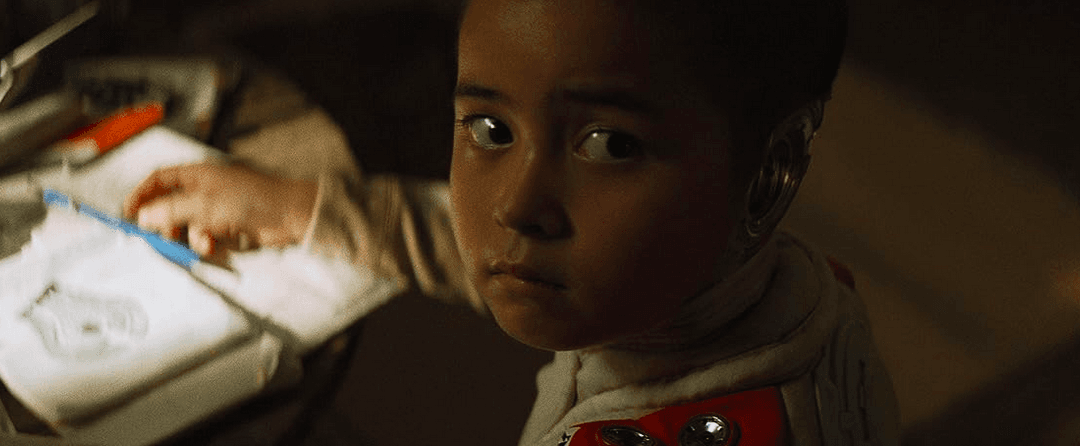“The Creator” is a timely dystopia movie about Artificial Intelligence (AI) in the not-too-distant future. Drawing both visually and thematically (and heavily) from a long list are readily apparent borrowed elements from “Blade Runner,” “2001: A Space Odyssey,” “Avatar,” “Star Wars,” “Star Trek,” and “The Terminator.” British filmmaker Gareth Edwards directed the not-bad Star Wars movie “Rogue One” (2016). “The Creator” is his first movie since then.
‘The Creator’: A Deadly but Very Cute AI ‘Creator’
A Blade Runner-Avatar-Terminator retread where, unsurprisingly, artificial intelligence slowly usurps humanity.

Madeline Voyles as Alphie, in "The Creator." 20th Century Studios

Mark Jackson
Film Critic
|Updated:
Mark Jackson is the senior film critic for The Epoch Times and a Rotten Tomatoes-approved critic. Mark earned a bachelor's degree in philosophy from Williams College, followed by classical theater conservatory training, and has 20 years' experience as a New York professional actor. He narrated The Epoch Times audiobook "How the Specter of Communism Is Ruling Our World," available on iTunes, Audible, and YouTube. Mark is featured in the book "How to Be a Film Critic in Five Easy Lessons" by Christopher K. Brooks. In addition to films, he enjoys Harley-Davidsons, rock-climbing, qigong, martial arts, and human rights activism.
Author’s Selected Articles




